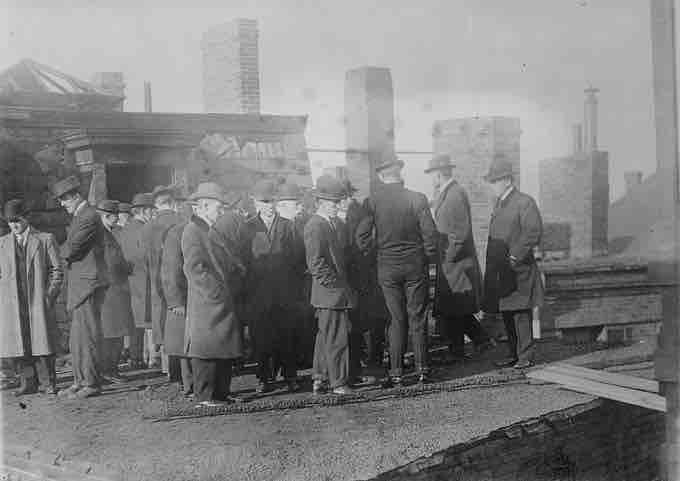Background
The Assistance of Counsel Clause of the Sixth Amendment to the United States Constitution provides: "In all criminal prosecutions, the accused shall enjoy the right . . . to have the Assistance of Counsel for his defense."
The assistance of counsel clause includes, as relevant here, five distinct rights:
- The right to counsel of choice
- The right to appointed counsel
- The right to conflict-free counsel
- The effective assistance of counsel
- The right to represent oneself pro se
As stated in Brewer v. Williams, 430 U.S. 387 (1977), the right to counsel means "at least that a person is entitled to the help of a lawyer at or after the time that judicial proceedings have been initiated against him, whether by formal charge, preliminary hearing, indictment, information, or accusation." Brewer goes on to conclude that once adversarial proceedings have begun against a defendant, he has a right to legal representation when the government interrogates him and that when a defendant is arrested, "arraigned on an arrest warrant before a judge" and "committed by the court to confinement . . . there can be no doubt that judicial proceedings have been initiated."
Individuals subject to grand jury proceedings do not have a Sixth Amendment right to counsel because grand juries are not considered by the U.S. Supreme Court to be criminal proceedings, which trigger the protections of that constitutional protection.

Grand Jury at Arcadia Hotel Fire.
A grand jury investigating the fire that destroyed the Arcadia Hotel in Boston, Massachusetts in 1913.
In the 2009-2010 term of the United States Supreme Court, it was handed down that a suspect's request for legal counsel is only good for fourteen days after the suspect is released from police custody.
Choice of Counsel
Subject to considerations such as conflicts of interest, scheduling, counsel's authorization to practice law in the jurisdiction, and counsel's willingness to represent the defendant (whether pro bono or for a fee), criminal defendants have a right to be represented by counsel of their choice. The remedy for erroneous depravation of first choice counsel is automatic reversal.
Whether counsel is retained or appointed, the defendant has a right to counsel without a conflict of interest. If an actual conflict of interest is present, and that conflict results in any adverse effect on the representation, the result is automatic reversal. The general rule is that conflicts can be knowingly and intelligently waived, but some conflicts are non-waiveable.
Appointment of Counsel
In Powell v. Alabama, 287 U.S. 45 (1932), the Supreme Court ruled that "in a capital case, where the defendant is unable to employ counsel, and is incapable of adequately making his own defense because of ignorance, feeble mindedness, illiteracy, or the like, it is the duty of the court, whether requested or not, to assign counsel for him." In Johnson v. Zerbst, 304 U.S. 458 (1938), the Supreme Court ruled that in all federal cases, counsel would have to be appointed for defendants who were too poor to hire their own. However, in Betts v. Brady, 316 U.S. 455 (1942), the Court declined to extend this requirement to the state courts under the Fourteenth Amendment unless the defendant demonstrated "special circumstances" requiring the assistance of counsel.
Ineffective Assistance of Counsel
In Strickland v. Washington (1984), the Court held that, on collateral review, a defendant may obtain relief if the defendant demonstrates both that the defense counsel's performance fell below an objective standard of reasonableness (the "performance prong") and that, but for the deficient performance, there is a reasonable probability that the result of the proceeding would have been different (the "prejudice prong").
To satisfy the prejudice prong of Strickland, a defendant who pleads guilty must show that, but for counsel's deficient performance, he or she would not have plead guilty.
Pro Se Legal Representation in the United States
A criminal defendant may represent himself, unless a court deems the defendant to be incompetent to waive the right to counsel.
In Faretta v. California, 422 U.S. 806 (1975), the Supreme Court recognized the defendant's right to pro se representation. However, under Godinez v. Moran, 509 U.S. 389 (1993), a court can require a defendant to be represented by counsel if it believes the accused less than fully competent to adequately proceed without counsel.
Some states extend the right to counsel to all matters where a defendant's liberty interest is threatened. The New Jersey Supreme Court unanimously held that, regardless of whether the proceeding is labeled as civil, criminal, or administrative, if a defendant faces a loss of liberty, she or he is entitled to appointed counsel if indigent. Anne Pasqua, et al. v. Hon. Gerald J. Council, et al., 186 N.J. 127 (2006) (March 2006).